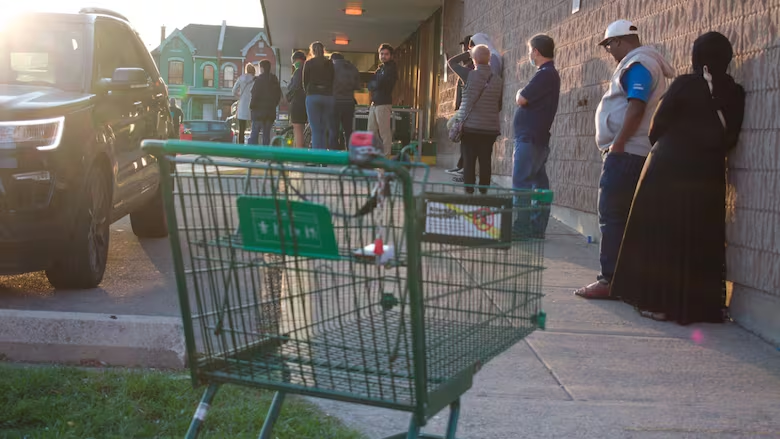Hamilton is ready to start re-opening Friday. But are you? After isolation, not everyone is
Some in Hamilton are anxious about reopening their lives as the city enters Stage 2

Danny Brown has always been a speed shopper. He would have a list of groceries ready to go, zip through the store and be out as quickly as possible.
But ever since the COVID-19 pandemic, the 33-year-old east end resident has stopped looking for the fast lane to abide by public health advice.
On Friday, pandemic-era restrictions will ease as Hamilton enters Stage 2 of the provincial reopening strategy. It has been the blessing many have been waiting for, but after months of being in isolation, not everyone is feeling ready to immediately re-open their lives. It's a mind over matter situation for some who can't shake off thoughts about the potential for more freedom to create more COVID-19 cases.
For Brown, who has two kids and a wife at home, it means uncertainty about if it's safe to return to his old life of looking for the fast lane in grocery stores.
"It's quite a thing to get your head around, when you can't pass people in the aisle without coming in really close contact with them," Brown, 33, said.
"I'm just hoping people realize this is still very real."

Others share the same concerns as Brown just days before hairdressers, malls, spas, pools and other businesses open up.
Frances Murray, a 58-year-old woman living downtown, said even though the rules are changing on Friday, nothing about her approach during the pandemic will change.
"I cut my own hair and it'll be awhile before I'll have to go back to the hairdresser and have her straighten it out," she said.
"I worry about the spread of the disease and people have to be aware of keeping the same habits they have of washing their hands, wearing masks and keeping away from people as much as possible."
The only exception may be visiting some of the city's trails.
And for Laura Babcock, a mother to an 11-year-old boy and nine-year-old girl, trepidation is top of mind.
She said she finds herself looking over her shoulder while in line to make sure the person behind her is two metres away. She peers around the corner of shopping lanes to make sure it's safe to go in and complete her now reduced shopping list.
"I just don't feel I'm ready to have my family take advantage of opening up," Babcock said.
"I often feel like I'm acting extremely compared to the behaviours of other people around me, but as far as I know, that's the best medical advice."
Not used to this feeling...Today I ran into first friend I’ve seen since March 15 (which was awesome) and then learned my city is opening up this weekend (also awesome for so many businesses) but I’m not feeling like I’m ready to “open back up”... anyone else feeling trepidation?
—@LauraBabcockRandi McCabe, a McMaster University professor in the department of psychiatry and behavioural neurosciences, said worrying, in this case, is a good thing.
"In these types of cases where people are doing certain types of behaviours to keep themselves safe, I'd say that's adaptive," she told CBC News.
"Now if someone is thinking about it and is paralyzed by fear that the world is ending, that's too much anxiety and that would be a problem, that would be a clinically significant anxiety, but it's just as dangerous to not have any anxiety."

Even though many people have adopted new habits during the pandemic, it's hard to say how many of their new patterns and routines will remain permanent.
McCabe, who is also the clinical director of mood, anxiety and seniors mental health services at St. Joseph's Healthcare Hamilton, said so long as someone's anxiety isn't so overpowering it prevents them from completing basic tasks throughout the day, it's not bad to be fearful of COVID-19.
"When people are anxious they tend to overestimate the risk of a bad thing happening and we're trying to look at what the realistic risks are and when we do that it lowers anxiety but in this case anxiety is good," she explained.
"It's protective, we're seeing the adaptive function of that emotion is, to prepare, to take precautions and hopefully a lot of people are doing that."

